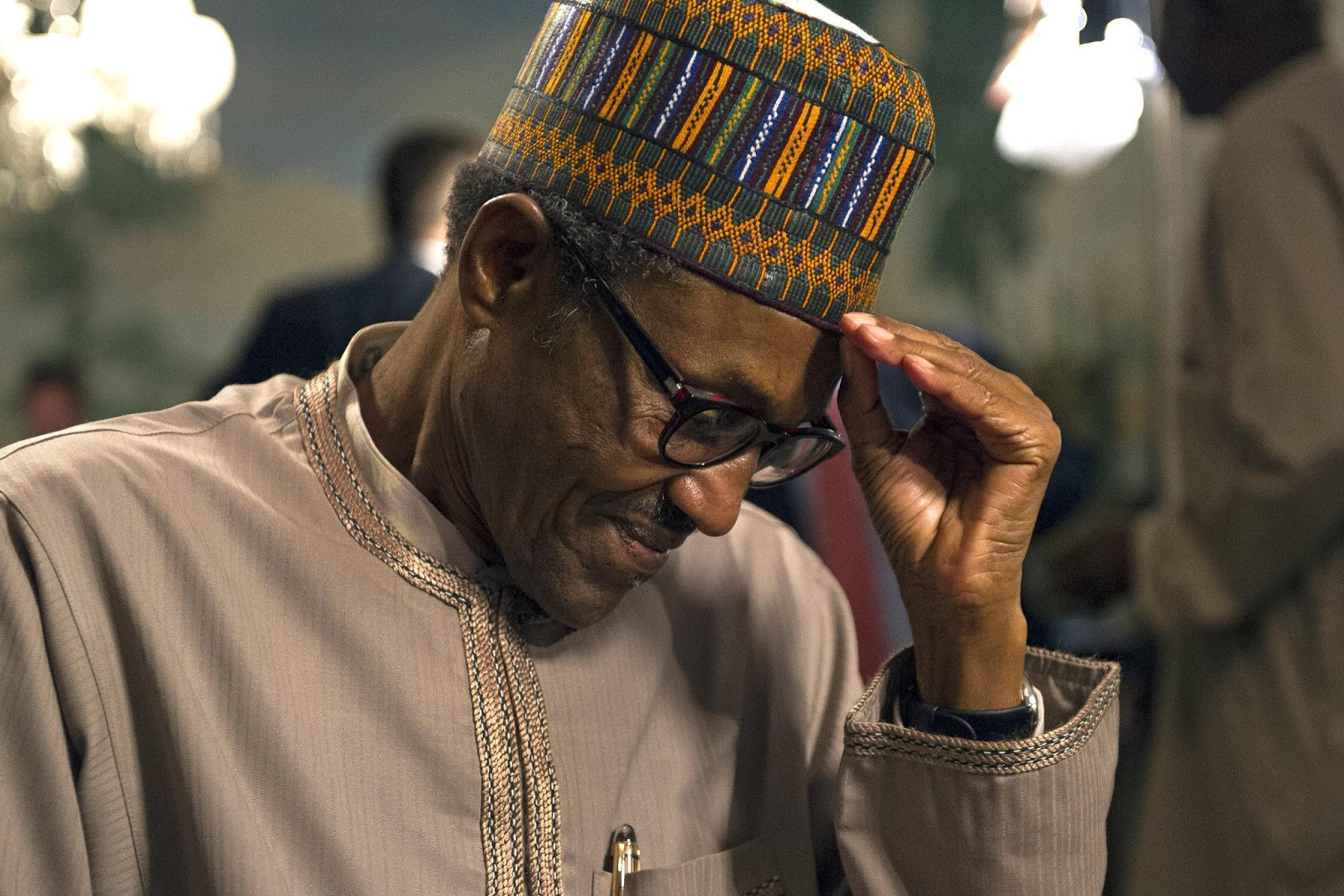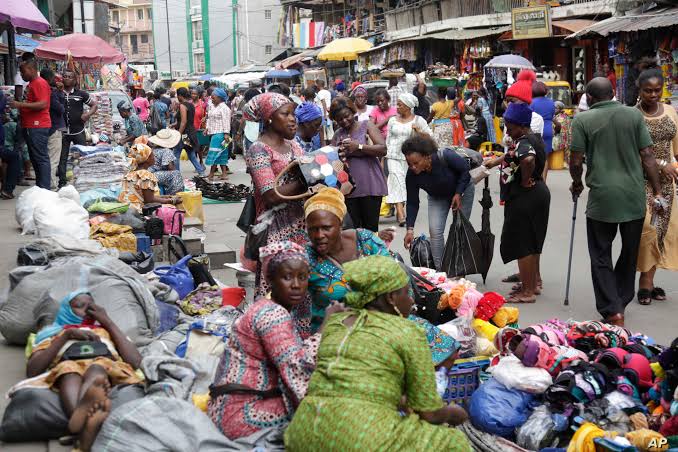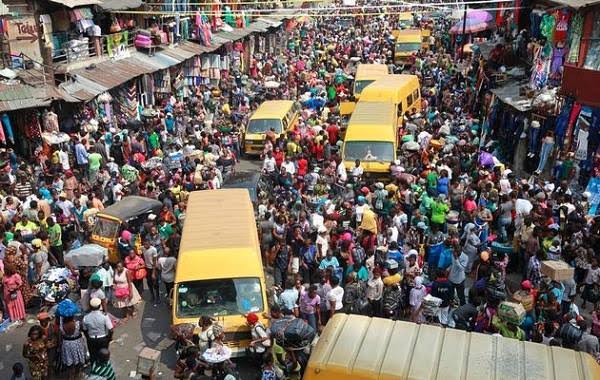ANALYSIS: Examining the impact of COVID-19 pandemic on Nigerian economy

By Ekpali Saint
Following the outbreak of corona virus pandemic also known as COVID-19 first identified in December 2019, more than four million confirmed cases of coronavirus have been reported around the world and the global death toll has also risen to above 277,000. The swift increase of corona virus cases is inflicting high and rising human costs, and as a matter of fact, the required protective measures are dangerously affecting economic activity globally.
As a result of the pandemic, the International Monetary Fund (IMF) hinted that the global economy is projected to contract sharply by –3 percent in 2020, much worse than during the 2008–09 financial crisis; a time when the world’s major economies were toppled and the world was immediately led into recession.
As the most populated country in Africa and seventh in the world, Nigeria has 5,455 confirmed cases of corona virus, 1,320 discharged cases and 177 deaths as of the time this report was filed. The swelling figures of COVID-19 pandemic in Nigeria remain a threat to the economy of Nigeria, even as the economic activities across the country have been reduced leaving many families to struggle for their daily bread.
The country, which is Sub-Saharan Africa’s largest economy that relies heavily on oil as its main source of foreign exchange earnings and government revenues, is gradually recovering from the 2016 recession. But with the outbreak of the pandemic, the economy is set to contract again this year with the GDP contracting 2.0% in 2020 – according to Focus Economies panelists.
Despite the economic strength of Nigeria, the GDP growth in less than a decade has been discouraging and tear-jerking, but thus far, Nigeria is known to be a well-off and affluent nation recognized in the global economy space. However, the experience Nigeria has had over the years as a result of slump in oil price and decline in the nation’s GDP with attendant losses and hardship to the citizens, the nation’s economy stands the risk of contracting this year and unemployment, which is noticeably rife is also likely to increase because of the novel COVID-19 virus ravaging the world.
In 2015 for instance, official reports from the National Bureau of Statistics (NBS) showed that the economy is being grounded with Nigeria’s real GDP plunging with about 2.35%, while job creation dropped by 69 percent.
Same year, the country was greeted with stagnation in various sectors, prices of food items increased and an abrupt halt in infrastructure development projects in most parts of the country with massive job loss.
However, there appear to be a problem in the conscious planning and diligent implementation of complex policy options when the economic growth rate in the first 3 quarters of the year was flatly negative. This is evidenced in a report that showed Nigeria boasted the largest economy in Africa with a GDP of $568 billion, which shrunk to $481 billion upon president Buhari’s assumption to office in 2015.
Though, it was recorded that Buhari assumed office with the economy already showing serious signs of decline, that “the Goodluck administration witnessed an oil production of 2.2 million barrels per day, but Niger Delta militants sliced this with sabotage and bombings to 1.63mbpd in third quarter”, says the Nigerian National Petroleum Corporation (NNPC), adding that “Buhari walked into a complex plot because former president, Goodluck Jonathan depleted the foreign reserves and savings at a time of high oil prices”.
The decline of the economy nonetheless, continued in the year 2016. At that time, the GDP in Nigeria was worth 405.10 billion US dollars and the GDP value in Nigeria represents 0.65 percent of the world economy.
Also, from the statistics presented, GDP in Nigeria averaged 92.65 USD billion from 1960 until 2016, reaching an all time high of 568.50 USD billion in 2014.
In like manners, the April 2014 statistical “rebasing” exercise showed that Nigeria has emerged as Africa’s largest economy, with the 2015 GDP estimated at $1.1 trillion.
At this point, it is important to note that oil has been a dominant source of income and government revenues since the 1970s. But following the 2008-9 global financial crises, the banking sector was successfully recapitalized and regulation enhanced. And the Nigeria’s economic growth over the years before the Buhari led administration has been driven by growth in agriculture, telecommunication and services.
Owing to lower oil price in 2015, GDP growth fell to around 3% and government revenues declined, while the non-oil sector contracted due to economic policy uncertainty. This caused economic downturn that led to a standstill in virtually every productive activity in the country.
In 2016, Africa’s largest economy officially slipped into recession with the growth figures showing the economy contracted 2.06% between April and June, after two consecutive quarters of declining growth.
According to data released by the country’s National Bureau of Statistics (NBS), “Gross Domestic Product shrank by 2.06% in the second quarter of 2016, following a 0.36% shrinking in the country’s first recession in more than 20 years”.
For this reason, experts noted that the big driver of the slump in the Nigerian economy has been the persistently low price in oil. As the largest economy producer of the commodity in the continent, producing roughly 2.4 million barrels a day, Nigeria relies heavily on oil, which is the major cause of the country’s catastrophe.
Experts also argued that Nigeria economy slipping into recession is as a result of poor economic planning. This, they hinge their argument on the basis of oil discovery in the Niger Delta and the obsession of what can be gotten from it. And with this, the government let their guard down in non-oil sector, especially the agricultural sector.
Similarly, Central Bank of Nigeria CBN Governor, Mr. Godwin Emefiele, laments as at when the country was still battling with recession the illogicality of running after oil and neglecting the agricultural sector.
“There was a time in this country when Nigeria survived only on revenues from agricultural produce in the world. But we abandoned this sector because we have found oil”, Mr. Emefiele expressed his displeasure over the neglect of the agricultural sector that contributed to the country slipping into recession in 2016.
At that time, unemployment rate in Nigeria became high and it was a major concern that caused pandemonium across the country.
In its presentation, NBS said Nigeria’s unemployment rate rose to 14.2 percent in the fourth quarter of 2016, adding that “the rate rose from 13.9 percent recorded in the preceding quarter of the year 2016”, while statistical data show that the underemployment rate rose to 21.0 percent.
Base on this, analysts said that the rise in the unemployment and underemployment rate was due to the negative economic growth recorded by the nation in 2016. The economically active population or working age population (persons within ages 15 and 64) increased from 108.59 million, which represents a 0.5 percent increase when compared to fourth quarter in 2015.
“In fourth quarter of 2016, the labour force population increased to 81.15 million from 80.67 million in third quarter 2016, representing an increase of 0.6 percent in the labour force during the quarter”, report had shown.
Further report also showed that the total number of persons in full time employment decreased by 977,876 or 1.8 percent when compared to the previous quarter and decreased by 1.92 million or 3.5 percent when compared to fourth quarter of 2015.
“And the number of underemployed in the labour force increased by 1,109,551 or 7.0 percent, resulting in an increase in the underemployment rate from 19.7 percent (15.9 million persons) in third quarter 2016 to 21.0 percent (17.03 million persons) in fourth quarter of 2016. There were a total of 28.58 million persons in the Nigerian labour force that were either unemployed or underemployed compared to 27.12 million in the third quarter, 26.06 million in second quarter and 24.5 million in first quarter in 2016”, sourced from the premium Times.
Nevertheless, the sudden increase in the price of petrol from #65 to #140 in the administration of the former president, Goodluck Jonathan, triggered by the removal of fuel subsidies on January 1, 2012 caused a total strike and protests across the country.
Upon this, Goodluck Jonathan with the Nigerian Labour Congress reached a consensus which resulted to the reduced pump price to 97 naira and further taken to 87 naira in the run-up to the 2015 general elections.
Meanwhile, after the election in 2015, the fuel subsidy was removed again, and the pump price increased once more, despite the fall in oil price. It was recorded that since the fall in oil prices in 2015 and 2016, the government exchange rate policy has limited devaluation of the naira due to inflation concerns by Buhari.
In 2015, Nigeria’s economy grew by 2.7%, significantly below its growth of 6.3% in 2014. But ever since the fall in oil prices in mid-2014, economic growth has been on the downward spiral. And in 2016, the economy continue to reduce after recording negative growth in the first two consecutive quarters (-0.4% and -2.1% year-on-year in real terms respectively).
Furthermore, the economy downturn greeted Nigerians with inflation, as it doubled to 18.8% at the end of 2016, from its level of 9.6% at the end of 2015. This, mainly, is as a result of fuel and electricity price increase and depreciation of the Nigerian naira during the year.
The NBS on January 4, 2017 confirmed this in a report contained in its Consumer Price Index (CPI) that prices of essential commodities rose at a faster pace in January by pushing up the inflation rate to 18.72%.
According to the bureau, “the CPI which measures inflation, increased by 18.72 percent (year-on-year) in January, up by 0.43% points from the rate recorded in December 2016 (17.39%)”.
Also, collapsing oil prices have mounted up pressure on Nigeria’s currency. The Central Bank maintained a peg of roughly 200 against the dollar until June 2016, but as dollar reserves ran dry, the government changed track and devalued the currency and the naira immediately plunged 30 percent.
As against the inflation that hit 18.72% in January 2017, naira sinks further to 507 naira against dollar. This made food stuffs to become almost unaffordable for Nigerians. This is hinge on the impact of naira devaluation and increase in prices of petroleum products, prices of goods and services have been rising persistently since 2015, with the inflation rate which measures rate of increase in prices, rising from 9.3 percent in October 2015 to 18.55 percent in December 2016.
The economic recession Nigeria experienced was even more felt in the life of the ordinary Nigerians. Contrasting the prices of food items from the year Nigeria slipped into recession (2016) and the year the country exited recession (2017) will at this point be necessary – the price of 50 kilogrammes of Garri rose to #15,000 in January 2017 from #3,900 in January 2016. Similarly, 50 kilogrammes of beans that sold for #13,500 in January 2016 rose by 33 percent to #18,000 in January 2017. Also, price of 25 litres of palm oil rose to #17,500 in January 2017 from #6,500 in January 2016. Yet, report showed that Nigeria exited recession; a time when prices of food items were high.
It is as though the oil wealth has removed the ability to think and reason well from Nigerians as it has become a source of problem in the country.
In a presentation in Ibadan on September 9 at the 2017 Town Hall meeting, the Governor of Kaduna State, Nasir el-Rufai, said he believes the oil wealth accruing to the country constitutes a major obstacle to Nigeria’s ability to think and innovate its way out of underdevelopment.
“I wish the oil wells and the free money from there dry up so that the government and the people can get serious about making the country realize its full potential”, el-Rufai said.
While speaking at the same event in Ibadan, Professor Sam Olofia explained that though the country was technically out of recession but it requires sustained efforts for an economy to be progressive, urging that “if Nigeria does not diversify its dependence on oil early enough, the country will remain an underdeveloped economy for long”.
According to statistical data, NBS said that Nigeria experienced growth in economic output for the fifth consecutive quarter. The Gross Domestic Product expanded by about 2.3% in Q3 2019 compared to 1.8% in the corresponding quarter of the preceding year (Q3 2018). The Q3 2019 GDP growth was slightly higher than the 2.1% growth recorded in Q2 2019.
In its document, PricewaterhouseCoopers Limited (PWC) reported that the economic performance in Q4 2019 was driven primarily by the oil sector (which is only 9.8% of GDP), which grew by 6.5% in Q3 2019 compared to -2.9% recorded in Q3 2018 and 7.2% in Q2 2019 respectively.
PWC added that, “with demand outpacing local production and supply capacity, food inflation rose to a 19-month high of 14.48% in November 2019 from 14.09% in October 2019. Consequently, headline inflation spiked by 11.85% in November 2019 from 11.61% in October 2019.
“Despite positive economic growth for several years, Nigeria’s GDP growth still falls short of the projections set in the Economic Recovery and Growth Plan (ERGP). There are still structural barriers that prevent achieving the medium-term economic policy’s growth goals of 4.5% and 7% for 2019 and 2020 respectively”.
NBS report on the Nigeria’s annual 2019 real GDP growth rate stood at 2.27%, compared to 2.3% estimated for the year and marginally higher than 1.9% in 2018. Meanwhile, as the 30th largest economy globally, inflation hit Africa’s leading economy, Nigeria by 11.4% in 2019.
Interestingly, Nigeria’s GDP growth rate in the fourth quarter of 2019 represented the highest quarterly growth performance since the 2016 economic recession, as Nigeria GDP grew by “2.55% (year-on-year) in real terms in the fourth quarter of 2019. The growth represents an increase of 0.17% points and an increase of 0.27% points”, NBS data revealed.
Owing to the outbreak of the pandemic, the Nigeria economy scenario is fading drastically. The decline in exports as a result of the restrictions on movement of people and border closures to non-essential items and traffic lends credence to the gradual dwindling of the economy. Considering this, the IMF in February, revised the 2020 GDP growth rate from 2.5% to 2%, due to relatively low oil prices and limited fiscal space.
The economic impacts caused by the coronavirus pandemic are grave especially for developing countries like Nigeria trying to maintain its mark as a resource-rich nation in the world and to strengthen its economy from shrinking, especially as oil accounts the country’s government revenue and foreign exchange earnings.
Indeed, “the coronavirus pandemic came unexpectedly, and it is disrupting business operations as well as the entire Nigerian economy. It hit the international market, crashing the prices of crude oil to significantly following lower demand from major oil buyers such as China. Since oil accounts for about half of the Nigerian government revenue and more than 90 percent of the country’s foreign exchange earnings, Nigeria had to revise its 2020 budget twice to actualize its spending plan for the year”, Bloomberg trained financial journalist, Segun Olakoyenikan, explained in an exclusive interview with crispng.
Similarly, Onyekere Ifeanyi, an entrepreneur and social critique told crispng that “COVID -19 has dealt a deadly blow to the frail Nigerian economy. However, this is not just peculiar to only Nigeria. But because we have a poorly planned economy, and one that was recovering from recession, the impact is felt in the inflation rate that prices of goods especially everyday items such as foodstuffs more than doubled”.
He added that, “The pandemic has led to retrenching of workers as many industries could not cope with expenses, and those who are still retained may experience slash in their remunerations. Unfortunately, we run a mono-economy and virtually no one is ready to buy the country’s oil and naira kept depreciating and the budget has become a document laden with crossroads”.
Despite all these, unfortunately, the rising number of coronavirus cases and fatalities are not only bloodcurdling but also startling, such that managing the situation prompted Nigerian governments to enforce lockdown across the country, including commercial hubs in various states across the country.
Commenting on this, financial journalist Olakoyenikan said that, “we observed the number of infected cases kept rising despite government’s efforts to contain the spread of the virus. This increase triggered lockdown directives in Nigeria’s commercial hub Lagos and capital Abuja, as well as Ogun state. The 5-week restriction on movement and other preventive measures obviously affected businesses negatively, forcing many companies to lay off staff, while some cut down on workers’ salaries to stay afloat”, quickly adding that “the implication on this is that it might further worsen an already high unemployment rate which stood at 23 percent as of September 2018, complicate Nigeria’s accelerating inflation figures due to supply shocks, and shrink the nations’ economy”.
While asked if the government is doing well to assuage the sufferings of the people, Olakoyenikan said Nigerian leaders need to do more to alleviate the sufferings of the people occasioned by the pandemic. Nigeria’s economy is structured in a way that about 60 percent of its workforce operates in the informal sector of the economy, meaning they are rarely taxed or monitored by the government. In fact, many people in this category live from hand to mouth.
But with the coronavirus pandemic, he said that “these informal workers are locked down and in a case whereby they could go out, there are no jobs to do compared pre-COVID-19, this means their daily earnings might be affected; a situation that could escalate Nigeria’s poverty figures. So, the government said there are palliative provisions for three million households across the country, but this is just a little compared to those that are affected by the virus, this is the reason why some people believe the leaders are not doing well”.
He continued; “every effort of the government is appreciated. But there is a need to do more, looking at their disposal. Recently, President Buhari announced VAT and import waiver for medical terms. This is a very good decision and it would help to easily produce medical items for Nigerians to use (at a cheaper cost too), and in a situation whereby they need to import, there would be no import duties on such supplies.
“In March, the Central Bank of Nigeria announced six police responses for the pandemic. Among the policies is interest rate reduction on CBN intervention facilities from 9 percent to 5 percent. This is to give an opportunity to those operating in the worst-hit sectors such as SMEs, health and even aviation to access such funds at a single interest rate of 5 percent.
“There was also a one-year extension of moratorium on existing intervention loans, and a #50 billion credit facility for SMEs as well as credit support for the healthcare industry”.
On his part, social critique Onyekere hinted that “even before the pandemic entered the country, many believed the present government has not been good with the economy. They also predicted that this period would coerce governments at all levels to come up with a blueprint for the economy. But it is dismay that little or nothing is done towards that effect. Even the health system that should get a facelift is not being properly looked into still. It goes beyond setting up isolation centres. This idea of waiting for donors and using the money they donated to run the budget would not get us anywhere. From all indications, we are deep into recession again and virtually nothing is being done to save the economy”.
But in spite of all these, the Bloomberg financial trained journalist stressed that; “I strongly believe the government can do more to reduce the impact of the pandemic on Nigerians. Manufactures need easy access to foreign exchange so they can bring in raw materials and begin production of some imported finished product locally. These would reduce pressure in the forex market and help bolster growth.
“Apparently, the outlook is not bright for the country’s economy. The IMF predicted a 3.4 percent contraction in the Nigerian economy. But in the light of all these, there are opportunities if we are ready to take the difficult yet necessary decision to jump start the Nigerian economy post COVID-19”.
In the face of all these, Nigerians are perturbed as the current state of things in the country and the post-COVID-19 as it concerns Nigerian economy is questionable. In fact, the slow progress in the diversification plan as further raised fears of nationals in the country. For this, a Nigerian student who spoke on the condition of anonymity urged that, “the government should focus more on how to diversify the economy so as to generate more revenue for the government”.
However, attempt to bolster the economy requires practical strategy and reformation which will improve Nigeria economic growth rate. In recognition of this, Olakoyenikan expressly stated that “what Nigeria needs right now is growth, I mean what can catalyze the nations’ economic activities. These can only be achieved with capital deployment. The Nigerian government does have all the money to do that. So it must embark on reforms that would boost investor confidence in the Nigerian market. As it is, foreign direct investment is drying up in Nigeria. While there was a jump to capital deployed to Nigeria in 2019, foreign direct investment fell to the lowest in about 10 years.
“So, what are the reforms that Nigeria can embark upon? The rule of law must be adhered to, no one wants to bring in his money where there is total disregard for the law. It gives a sign of high risks and that the court of the land might not be able to save such investors in the days of trouble”.
He continued: “The other is power sector reform. A lot of Nigeria’s problem is tied to power. Many SMEs have died because of lack of power, which a large chunk of some companies’ revenue is spent on power. This creates opportunities for investors to explore. But investors are weary that there might not be a good return for their funds when invested in the nations’ power sector. This is because there is not efficient pricing in the country. We also have other reforms such as the fuel subsidy and foreign exchange subsidy. We need to define these and come up with a better model to get it done if we must continue to subsidise”.




